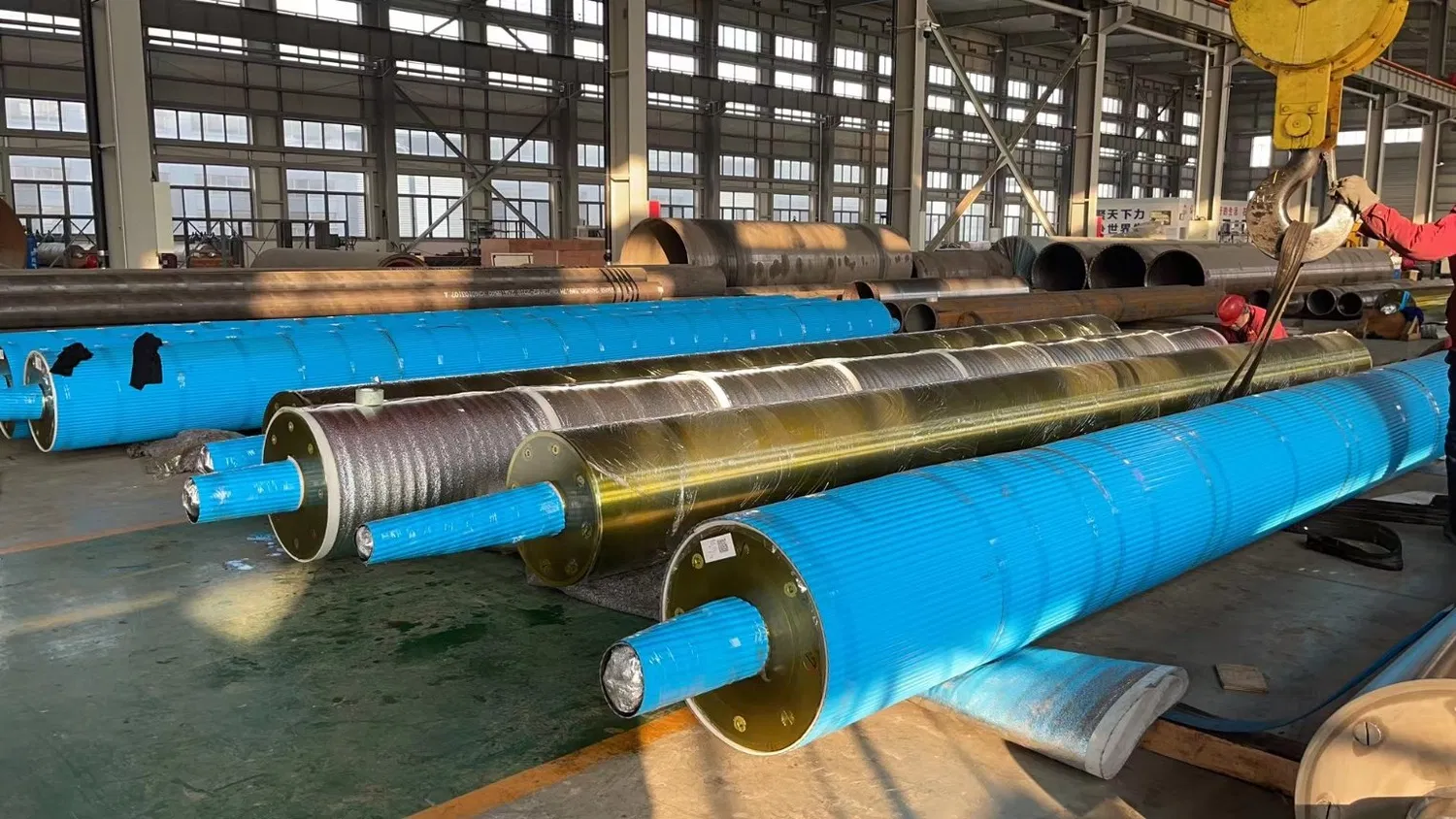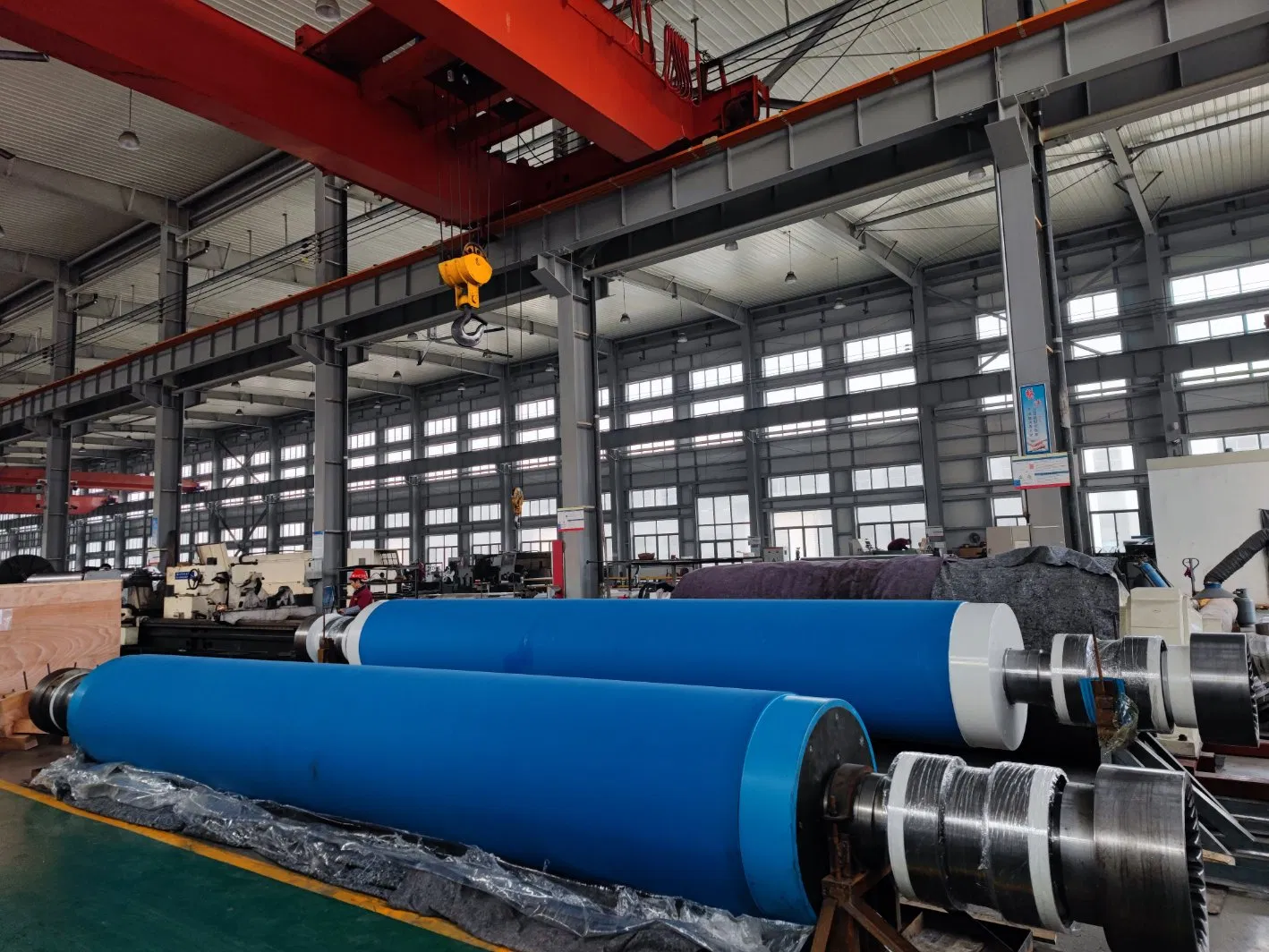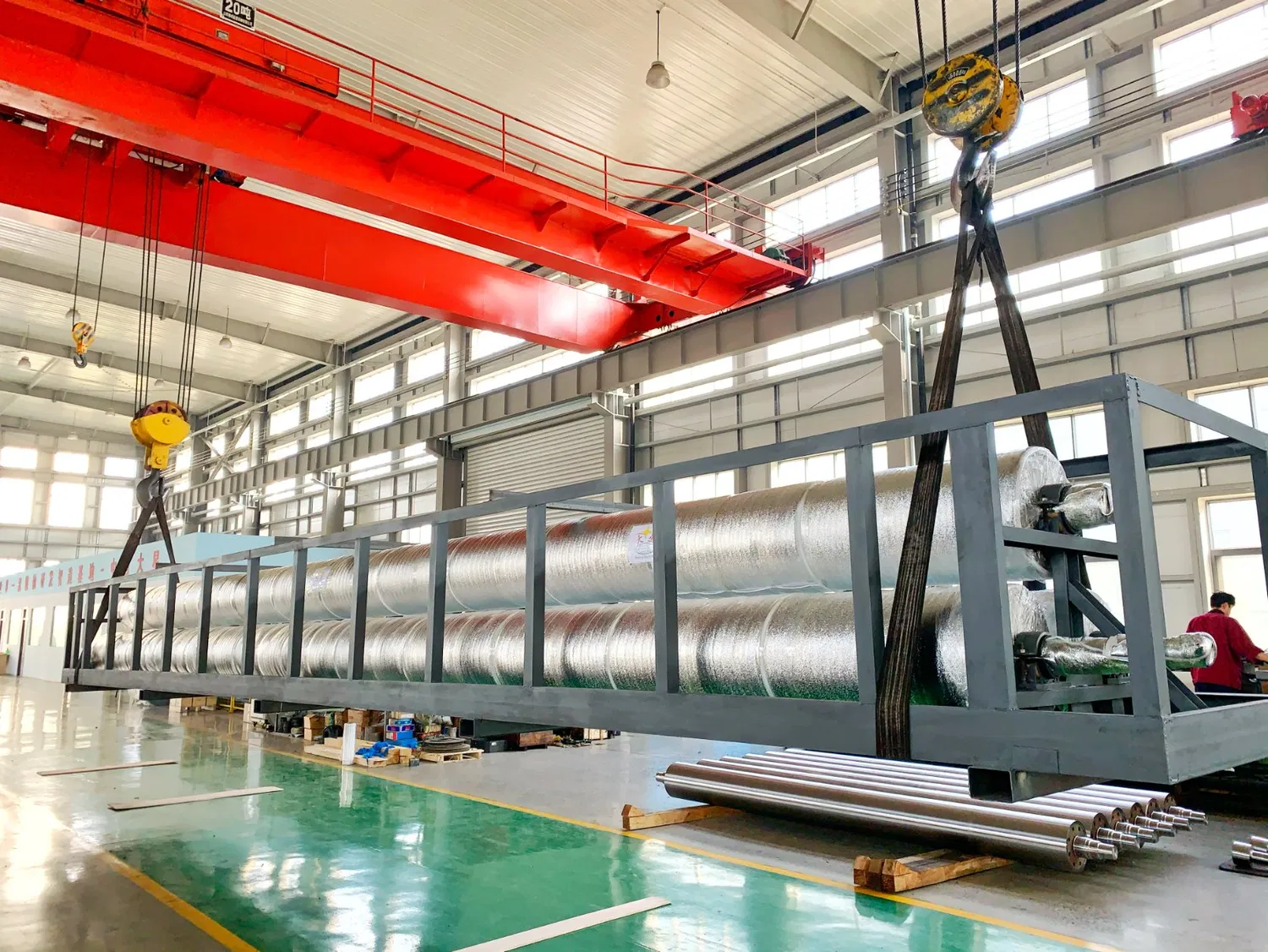To be honest, when most people think about paper, they rarely consider the intricate machinery behind its creation. Yet, within the heart of every paper mill lies a complex symphony of components, none more critical than the paper machine rolls. These aren't just simple cylinders; they are precision-engineered workhorses, each performing a vital function from dewatering and pressing to drying and calendering. And interestingly enough, for a paper machine to operate at its absolute peak, off-the-shelf solutions often fall short. This is where the specialized field of custom paper machine roll fabrication steps in, transforming raw materials into highly specific, performance-driven components tailored to the unique demands of each mill and paper grade.
Have you ever wondered what truly separates a high-performing paper machine from one plagued by inefficiencies and frequent downtime? Often, it boils down to the quality and suitability of its rolls. In my experience, investing in custom-fabricated rolls isn't just an expense; it's a strategic decision that directly impacts product quality, operational efficiency, and ultimately, a mill's bottom line. Let's delve deeper into why this bespoke approach is not just beneficial, but essential.
The Unsung Heroes: Why Custom Rolls Matter in Paper Production
The Heartbeat of the Paper Machine
Imagine a paper machine as a living organism. Its rolls are the arteries and veins, constantly moving, shaping, and refining the paper web. From the forming section where water is removed, through the press section that squeezes out more moisture, to the dryer section where heat completes the process, and finally to the calender section that determines the paper's finish – every stage relies on rolls. Each roll type, be it a suction roll, press roll, dryer cylinder, or calender roll, has a distinct purpose and faces unique operational stresses. They endure immense pressures, high temperatures, corrosive chemicals, and constant abrasion. Frankly speaking, the demands placed on these components are extraordinary.
Beyond Off-the-Shelf: The Need for Customization
While standard rolls exist, they rarely provide the optimal fit for every scenario. Paper mills are incredibly diverse, with varying machine widths, speeds, paper grades (from tissue to cardboard), and specific operational environments. A roll designed for newsprint might be entirely unsuitable for fine art paper, or a roll perfect for a slow-speed machine could fail catastrophically on a high-speed line. This is where the true value of custom paper machine roll fabrication becomes apparent. It allows for precise tailoring of dimensions, materials, surface finishes, and internal structures to match the exact requirements of a given machine and product. Many experts agree that this level of specificity is crucial for maximizing throughput, minimizing defects, and extending the lifespan of the entire paper machine.
The Intricate Process of Custom Paper Machine Roll Fabrication
The journey from a concept to a fully functional custom paper machine roll is a fascinating blend of engineering precision, material science, and meticulous craftsmanship. It's a multi-stage process that leaves no room for error.
Design and Engineering: The Blueprint for Precision
It all begins with a comprehensive understanding of the client's needs. This involves detailed consultations to ascertain the roll's intended function, operating conditions (temperature, pressure, speed), the type of paper being produced, and any specific challenges the mill faces. Engineers then use advanced CAD/CAM software to design the roll, taking into account factors like deflection, critical speed, thermal expansion, and dynamic balance. This initial design phase is paramount, as any oversight here can lead to significant issues down the line.
Material Selection: More Than Just Metal
The choice of material is critical. Rolls are typically made from high-grade steels, cast iron, or specialized alloys, selected for their strength, rigidity, corrosion resistance, and thermal properties. For example, some rolls might require stainless steel for chemical resistance, while others need hardened steel for wear resistance. Beyond the core material, the selection of internal components like bearings, journals, and internal cooling/heating systems is also carefully considered.
Machining and Grinding: Crafting Perfection
Once the design and materials are finalized, the fabrication process moves to the machining stage. This involves rough turning, boring, and milling to achieve the general shape and internal features. However, the true magic happens during precision grinding. This highly specialized process involves removing microscopic layers of material to achieve incredibly tight tolerances for diameter, concentricity, and surface finish. It's worth noting that achieving a perfectly smooth and precise surface is vital for uniform paper quality and efficient operation. This stage is a cornerstone of precision roll manufacturing for paper mills.

Advanced Coatings and Surface Treatments: The Finishing Touch
The performance of a paper machine roll is often significantly enhanced by its surface. This is where advanced coatings and surface treatments come into play. Depending on the roll's function, it might receive a hard chrome plating for wear resistance, a rubber or composite cover for specific nip characteristics, or a thermal spray coating for enhanced release properties or corrosion protection. These coatings are applied with extreme precision and then often ground and polished to the desired finish, ensuring optimal interaction with the paper web and other machine components.
Key Considerations for Successful Custom Roll Projects
Undertaking a custom roll fabrication project requires a deep understanding of both the paper-making process and advanced manufacturing techniques. Several factors are paramount for success.
Understanding Machine Dynamics and Paper Grade Requirements
A custom roll fabricator must possess an intimate knowledge of how paper machines operate. This includes understanding the dynamic forces at play, the specific moisture content at each stage, and the unique characteristics of different paper grades. For instance, a roll for tissue paper will have entirely different surface and deflection requirements than one for linerboard. The operating speed of the machine also significantly impacts design, especially concerning dynamic balancing to prevent vibrations.
The Importance of Material Science and Metallurgy
Choosing the right material isn't just about strength; it's about understanding how that material will behave under specific loads, temperatures, and chemical exposures over extended periods. A skilled fabricator will have in-house metallurgical expertise or access to it, ensuring that the chosen alloys and heat treatments provide the necessary durability and performance. This knowledge is crucial for predicting roll lifespan and preventing premature failure.
Partnering with the Right Fabricator
Frankly speaking, not all fabricators are created equal. When seeking custom paper machine roll fabrication, it's vital to partner with a company that boasts extensive experience, state-of-the-art equipment, and a proven track record. Look for fabricators with comprehensive in-house capabilities, from design and machining to balancing and coating. Their ability to handle complex projects, provide engineering support, and offer ongoing service (including potential for specialized paper machine roller repair) is a strong indicator of their reliability and expertise. Have you ever considered how much downtime a poorly fabricated roll could cause? It's a significant risk that can be mitigated by choosing the right partner.
The Benefits of Investing in High-Quality Custom Fabrication
The initial investment in custom rolls might seem higher than off-the-shelf alternatives, but the long-term benefits far outweigh the upfront cost.
Enhanced Performance and Efficiency
Custom rolls are designed to integrate seamlessly with your specific machine, optimizing nip pressures, dewatering efficiency, and heat transfer. This leads to higher machine speeds, reduced energy consumption, and more consistent paper quality, directly impacting your production output and profitability.
Reduced Downtime and Maintenance Costs
Because custom rolls are built to exact specifications and often incorporate superior materials and coatings, they are inherently more durable and less prone to unexpected failures. This translates to fewer unscheduled shutdowns, lower maintenance expenses, and a more predictable operational schedule. In my experience, the cost of downtime far exceeds the investment in quality components.
Extended Roll Lifespan
With proper design, material selection, and precision manufacturing, custom rolls can significantly outlast generic alternatives. This extended lifespan means less frequent replacement, further reducing operational costs over time. It also allows for more consistent performance without the degradation often seen with ill-fitting or lower-quality components.
Tailored Solutions for Unique Challenges
Every paper mill faces unique challenges, whether it's dealing with abrasive furnishes, extreme temperatures, or specific product demands. Custom fabrication allows for the development of bespoke solutions that address these challenges head-on, leading to innovative improvements that off-the-shelf products simply cannot offer.

Future Trends and Innovations in Roll Fabrication
The field of paper machine roll fabrication is not static; it's continuously evolving with advancements in materials science, manufacturing technology, and digital integration.
Smart Rolls and Sensor Integration
The advent of Industry 4.0 is bringing "smart" capabilities to paper machine rolls. Imagine rolls embedded with sensors that monitor temperature, pressure, vibration, and even surface wear in real-time. This data can be fed back into a mill's control system, allowing for predictive maintenance, optimized performance adjustments, and early detection of potential issues, drastically reducing the risk of catastrophic failures. This integration of IoT (Internet of Things) technology is set to revolutionize roll management.
Advanced Materials and Nanocoatings
Research into new materials and surface treatments continues to push the boundaries of performance. We're seeing the development of ultra-hard ceramic coatings, self-lubricating polymers, and even nanocoatings designed to resist specific chemicals or improve release properties. These innovations promise even greater durability, efficiency, and specialized functionality for future rolls. The development of advanced roll coating techniques is a particularly exciting area.
Sustainable Manufacturing Practices
As industries worldwide focus on sustainability, roll fabricators are also adopting greener practices. This includes optimizing material usage to reduce waste, employing energy-efficient manufacturing processes, and exploring more environmentally friendly coating materials and repair techniques. The emphasis is not just on making better rolls, but making them more responsibly.

In conclusion, the world of paper production is far more nuanced than it appears on the surface. The performance, efficiency, and longevity of a paper machine are inextricably linked to the quality and precision of its rolls. Custom paper machine roll fabrication is not merely a manufacturing process; it's a strategic investment in the future of a paper mill, ensuring that every sheet produced meets the highest standards while optimizing operational costs. By partnering with expert fabricators who understand the intricate dance between engineering, materials, and operational demands, mills can unlock new levels of productivity and maintain a competitive edge in a demanding market.
For more detailed information, please visit our official website:custom paper machine roll fabrication
About the author: Dr. Evelyn Reed is a seasoned expert in industrial machinery and materials science, with over two decades of experience specializing in the paper and pulp industry. Her work focuses on optimizing manufacturing processes through advanced component design and fabrication. Dr. Reed frequently consults with leading paper mills worldwide, sharing her insights on enhancing efficiency and durability through precision engineering.


